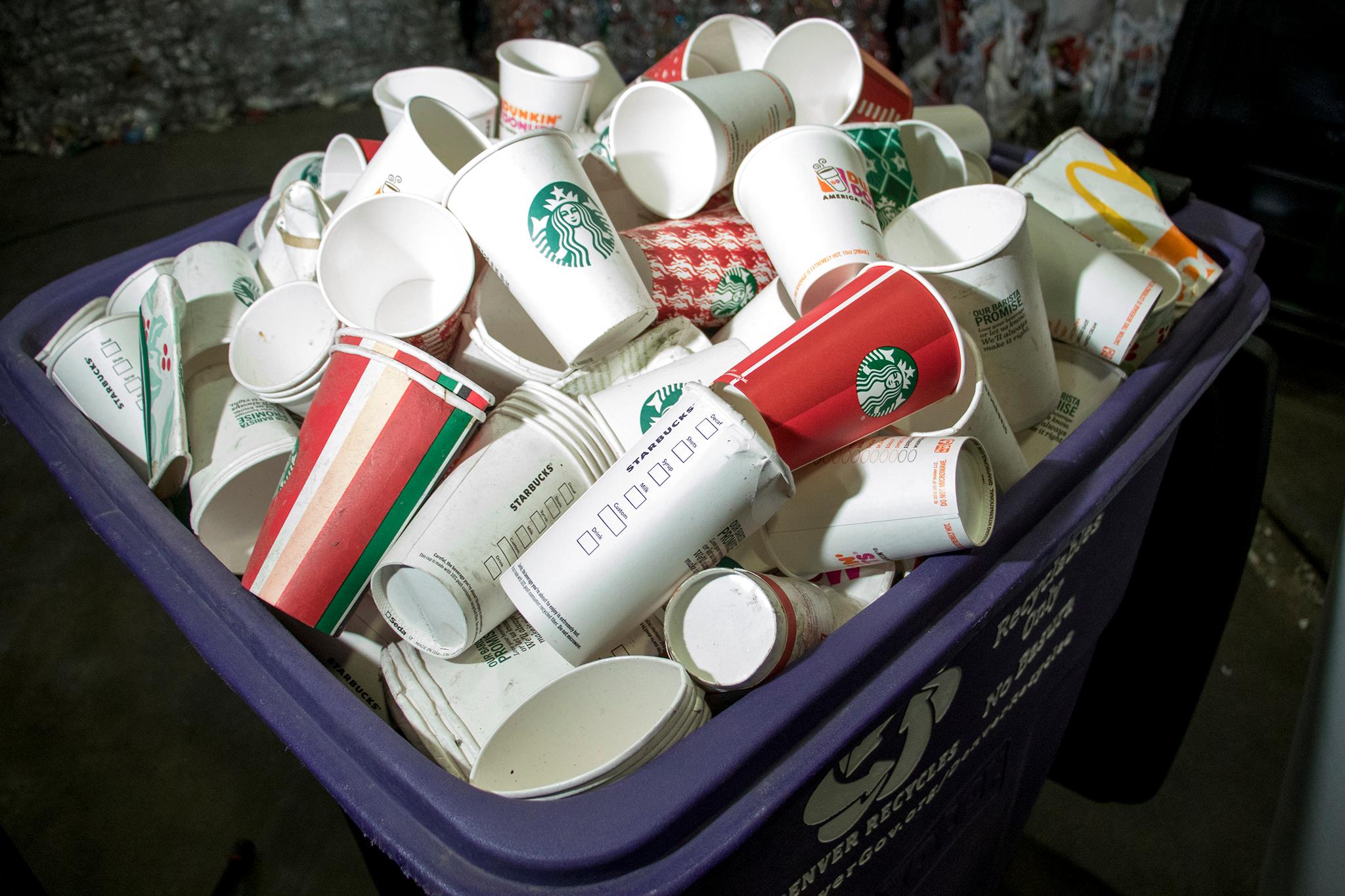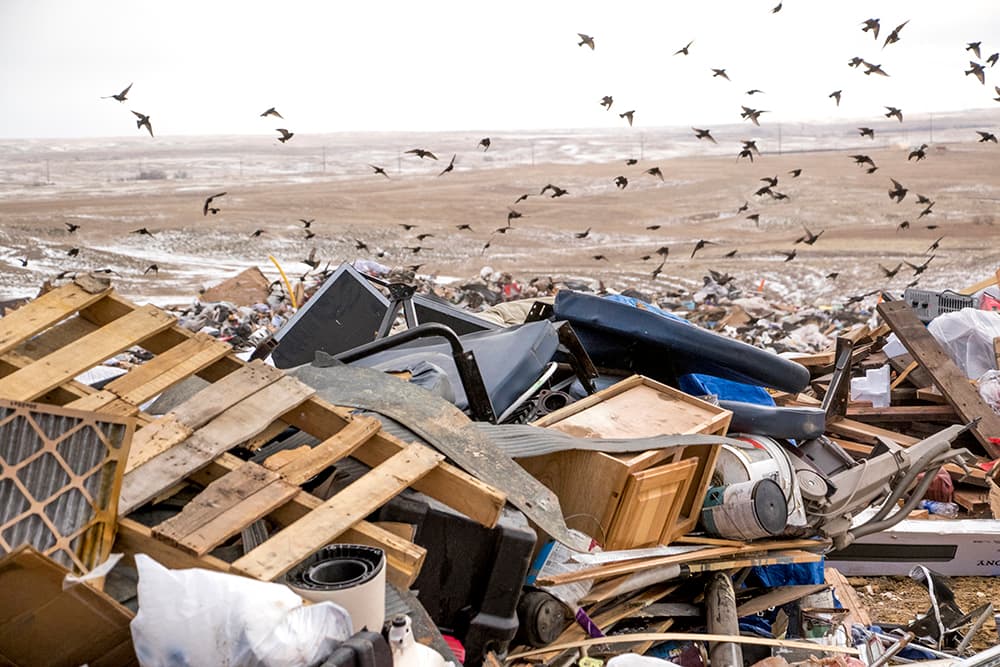The city has started gathering public input for an idea many Denverites have talked about for years: Pay as you throw.
The latest proposal to charge for trash collection in the city is led jointly by the city's climate action office and the transportation and infrastructure department, which is responsible for trash pick up. Climate action office executive director Grace Rink said the city has heard for years that people want weekly recycling, which the proposal would provide.
"The people of Denver know climate change is an issue and they want us to work on it," Rink said.
Under the proposal, monthly rates would range from $21 to $9 a month. It would be based on three bin sizes:
- Large: $21 for a 95-gallon bin (seven to eight kitchen bags)
- Medium: $13 for a 65-gallon bin (four to five kitchen bags)
- Small: $9 for a 35-gallon bin (two to three kitchen bags)
In addition to trash pick up, the new fees would cover weekly recycling, composting, equipment operators, inspectors, trucks, carts and other costs. A rebate would discount these rates and, in some cases, cover the costs for low-income households. Rink said people will be able to decide what size recyclable or compost bins they get as well.
Right now, recycling is picked up every other week, and compost is collected weekly for a $9.75 monthly fee.
The idea to pay for trash collection isn't new. Councilmember Jolon Clark said he's been pushing for the idea since he took office in 2015, and the pay as your throw idea was one Mayor Michael Hancock advocated for during his 2019 reelection campaign.
The current proposal would need to be approved by the full Denver City Council to become law. Clark said a vote on the proposal could come as early as this summer.
"I am excited that we're getting there," Clark said.
Ruby Hills Neighbors, a registered neighborhood organization, heard a presentation about the proposal during its Tuesday night meeting over Zoom. The neighborhood is in Clark's district in southwest Denver. Most attendants seemed supportive of the idea.

The city has about 180,000 households who get free trash pickup (well, not technically free, since this service is paid for by sales and property tax). This includes single-family homes and apartments with up to seven units.
At least 74% of waste ends up in landfills, giving the city a 26% diversion rate -- or the amount of material that is recycled or composted. That's below the 34% national percent diversion rate, according to the city's climate action office, and way lower than peer cities like Austin (42%), Portland (81%), and Seattle (54%).
But will it be easy to convince residents to pay for a service that's been free this whole time?
The idea that it's free is an understandable perception, Rink said, since the city's general fund currently covers the costs.
"We are not hearing any complaints yet about the idea of charging a fee for that," Rink said. "The service improvement adds enough value that [residents] appear to be willing to pay."
Change is hard, Clark said, but people are adaptable, pointing to the bag fee enacted last year he said has resulted in few complaints.
He likened paying for trash collection to when Denver Water switched to metered usage. Some customers used to have a flat rate, but starting in January 1991, meters tallying people's water usage became mandatory for all. People weren't thrilled -- Clark remembers his parents being "livid" at the new system -- but it was ultimately good for the city.
Clark said people have been asking for this kind of change for a while, adding the city's current framework is "reinforcing the wrong things," by having a system that can often end with recyclable or compostable material in a landfill.
He believes most Denver residents are excited about the proposed change. It could be a game-changer for what he called an "appalling" diversion rate in the city, and better reflect on Denver's reputation as a green city.
"It's well above time we deliver to our residents what they're asking for, which is a better outcome for the climate and (to be) more responsible of things we are done with when he tried to get rid of them," Clark said.
The office Rink leads was created in 2019. Voters in 2020 approved creating a climate fund to be overseen by her office. In November, the office released details about how will spend the $40 million it generates annually through sales tax over the next five years.
Correction: A previous version said Ruby Hill is in southeast Denver; it is in southwest Denver.












